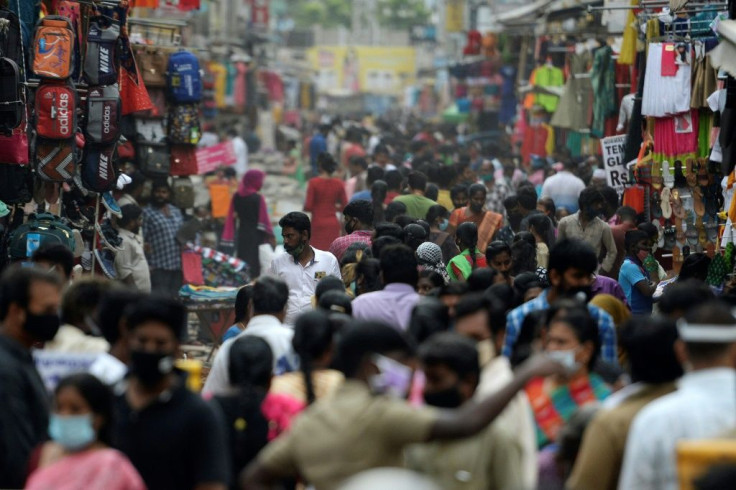India Passes Eight Million Coronavirus Cases
India passed eight million coronavirus cases on Thursday, with the world's second-worst-hit country bracing for a new wave of the pandemic.
There have also been more than 120,000 deaths across the country of 1.3 billion people, according to the latest government figures.
Only the United States has seen more infections, with 9.1 million confirmed cases and nearly 230,000 deaths.
India has one of the world's lowest death rates and the government has highlighted the slowing number of new infections in recent weeks.
But authorities are preparing for a new surge after Diwali, the country's most important religious festival on November 14. Textiles Minister Smriti Irani has become the latest of several cabinet members to test positive.
"All states need to be careful during the coming festive season. This caution must be exercised for the next three months at least," Health Minister Harsh Vardhan said in a recent statement.
A stringent lockdown imposed in March has gradually been eased as the government seeks to reboot the economy after the loss of millions of jobs nationwide. But experts say this has helped spread the disease.
New Delhi recorded 5,000 new cases on Wednesday, its highest daily figure since the outbreak of the pandemic. Officials have warned that the capital could see more than 10,000 cases a day in the next wave.

Experts have said crowds gathering for Diwali and other festivals, colder temperatures and the annual winter pollution crisis could worsen the impact of coronavirus cases in Delhi.
Authorities are also worried about the southern state of Kerala and West Bengal in the east which have seen worrying spikes in cases.
Financial capital Mumbai, India's worst-hit city, is adding about 2,000 cases a day.
Suresh Kumar Rathi, an epidemiologist from health charity Public Health Foundation of India, told AFP that if India took "proper precautions" now it could beat a new wave of infections but indiscipline would lead to a "disastrous" unravelling of recent gains.
Prime Minister Narendra Modi has also warned the public in recent speeches that they were being "careless" in giving up social distancing and other precautions.
"The virus is still out there. It thrives on our complacency," Modi said in a Thursday interview with the Economic Times.
While businesses and theatres have slowly started to reopen, schools and colleges remain shut in most cities and international flights are severely limited.
India currently only has air links with a small number of countries including the United States, France, Germany and Britain.
India's domestic air market was the world's fastest growing before the pandemic but is currently operating at less than 60 percent of last year's capacity.
© Copyright AFP 2024. All rights reserved.





















